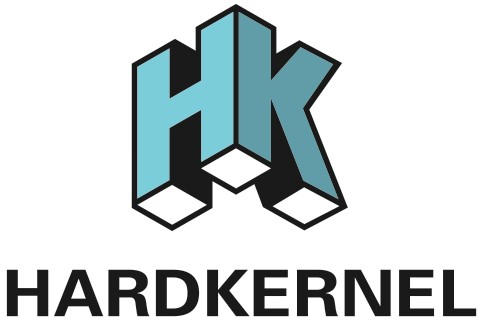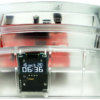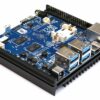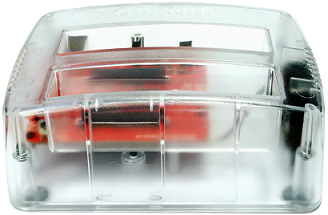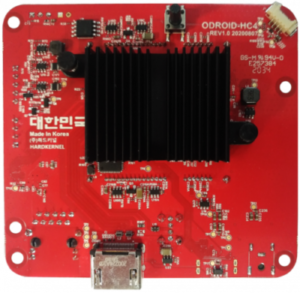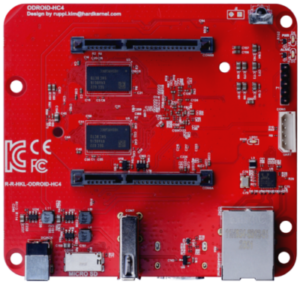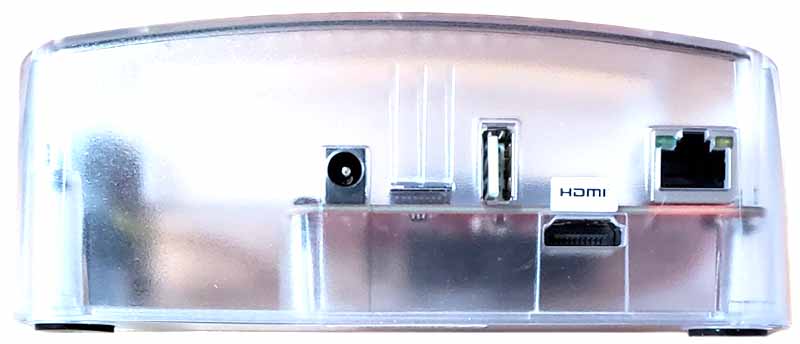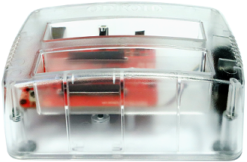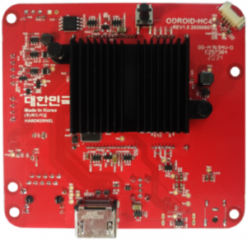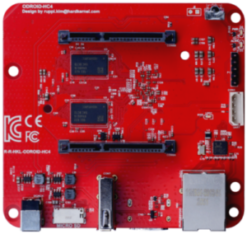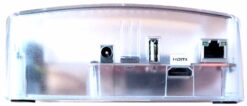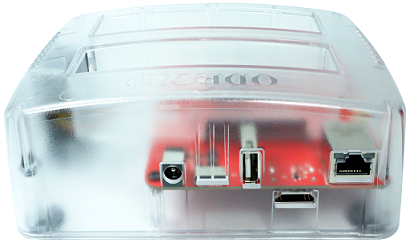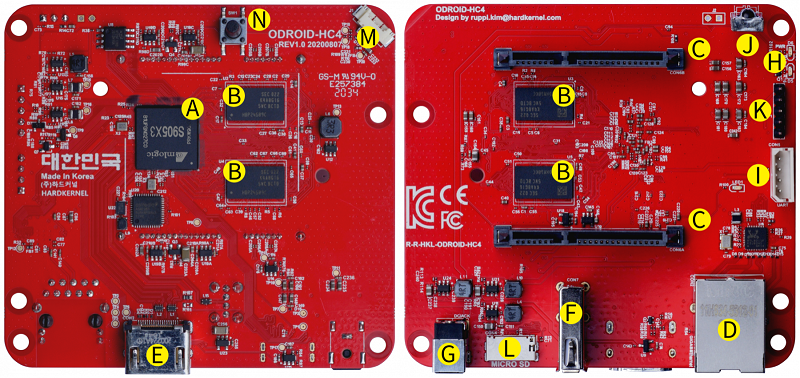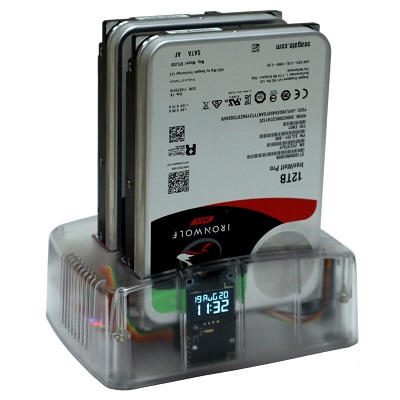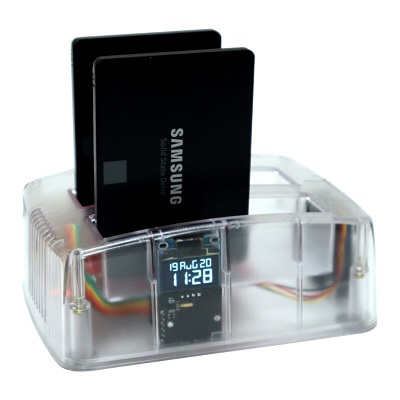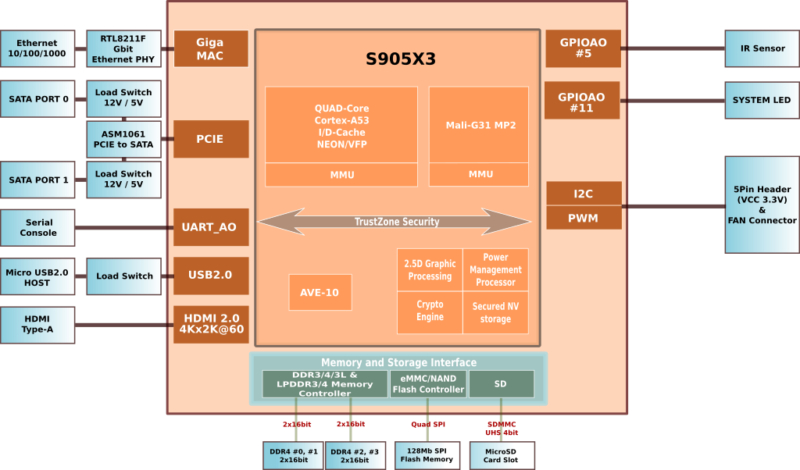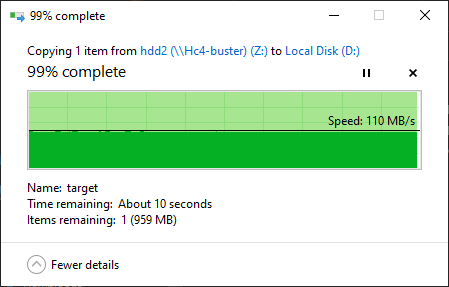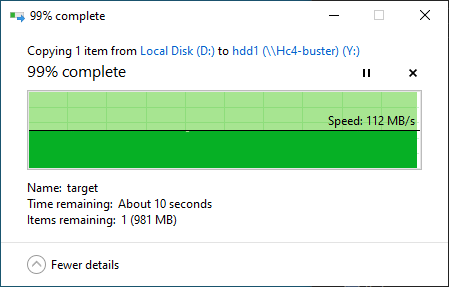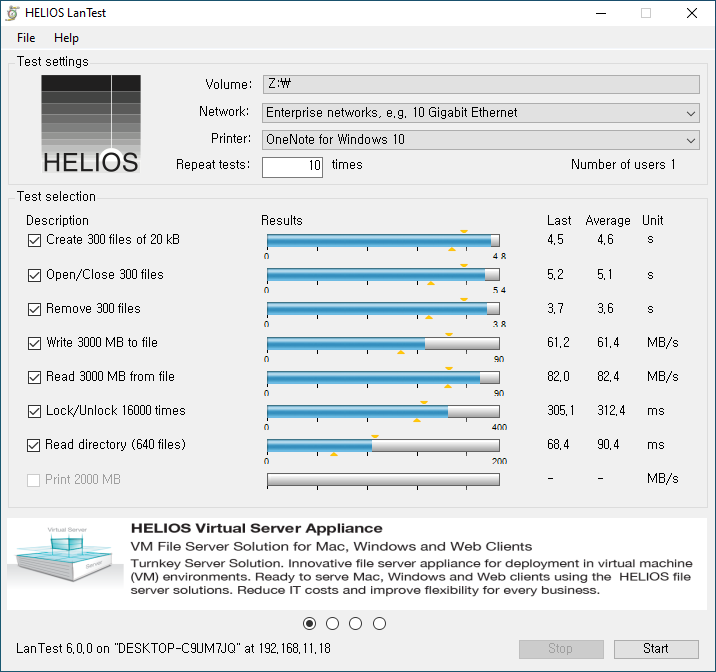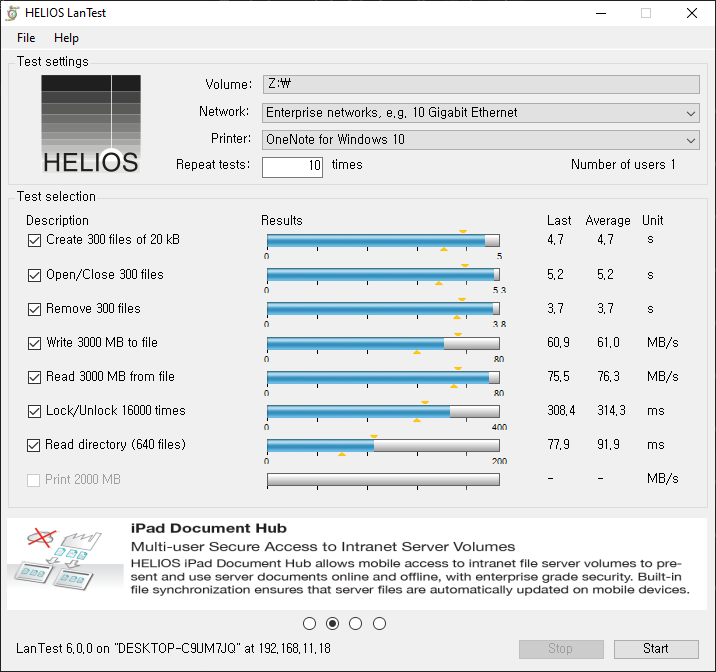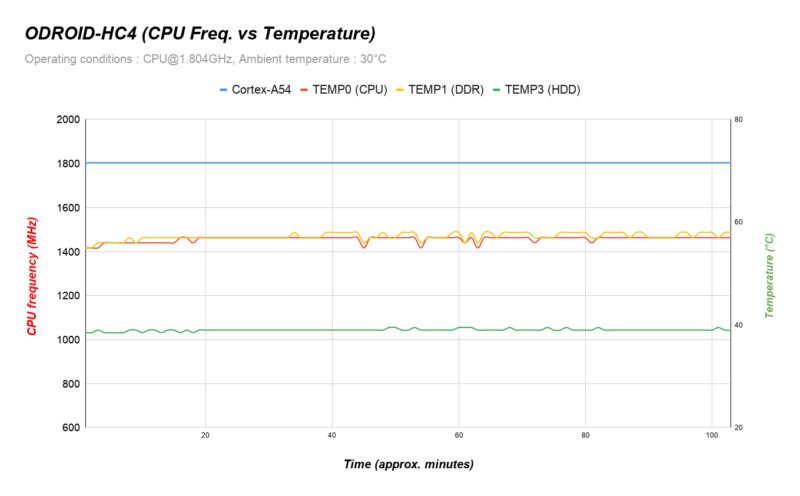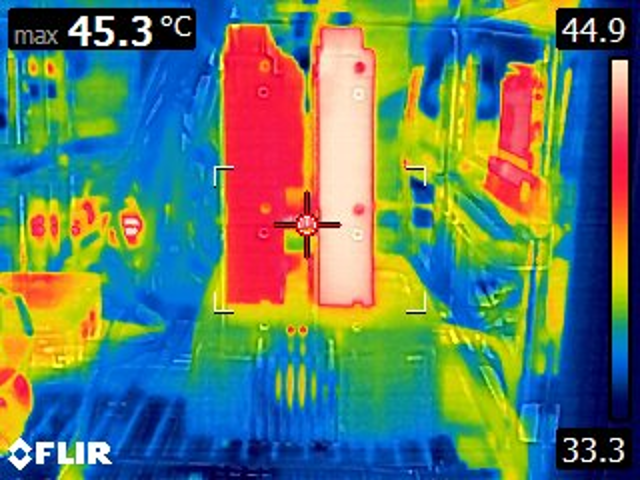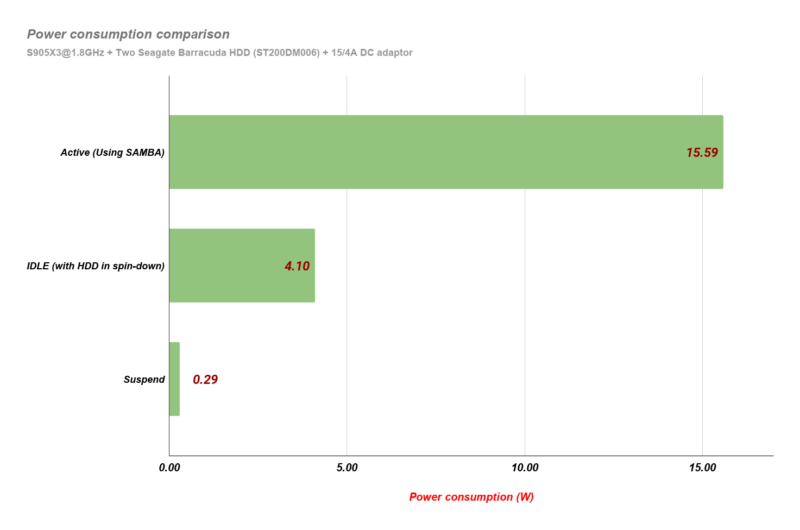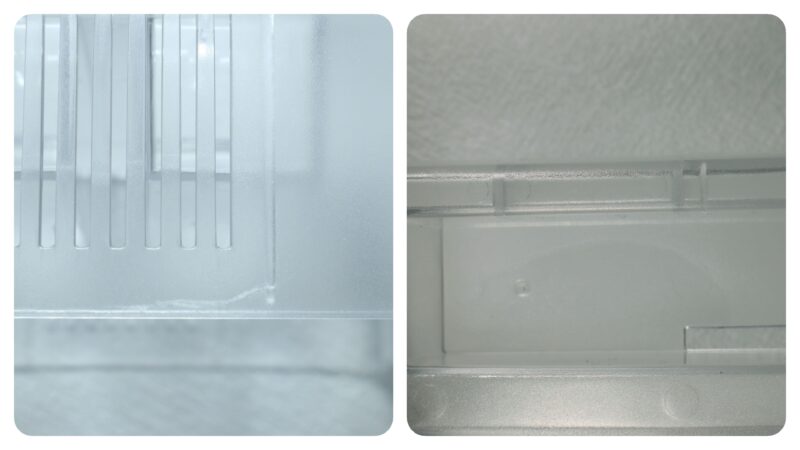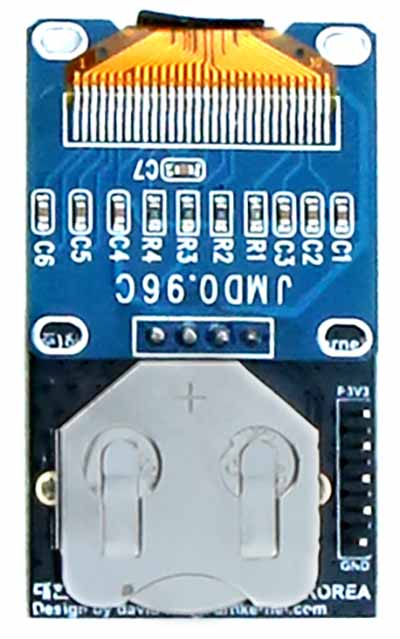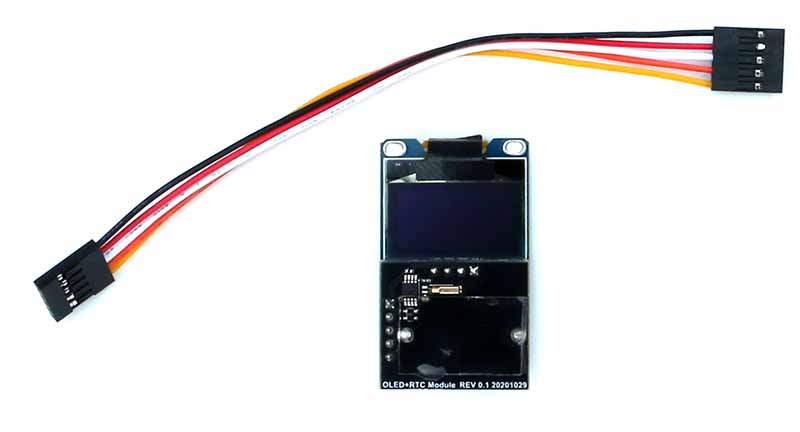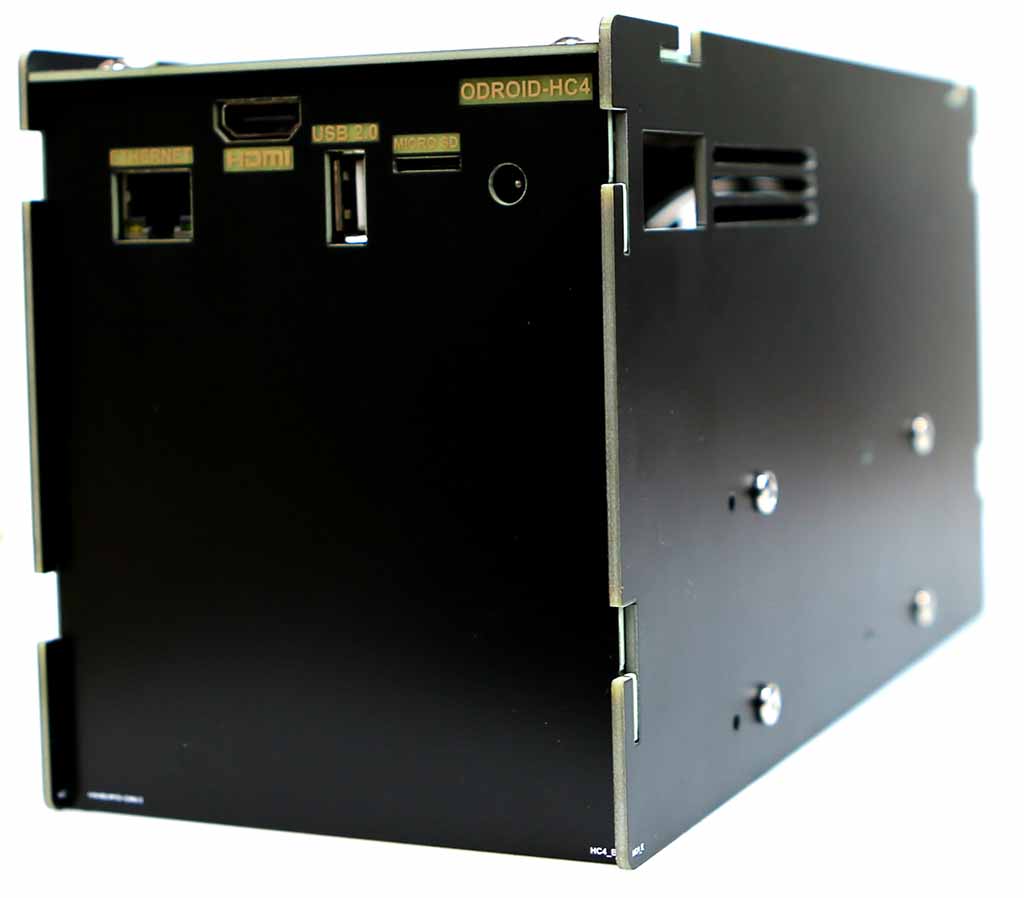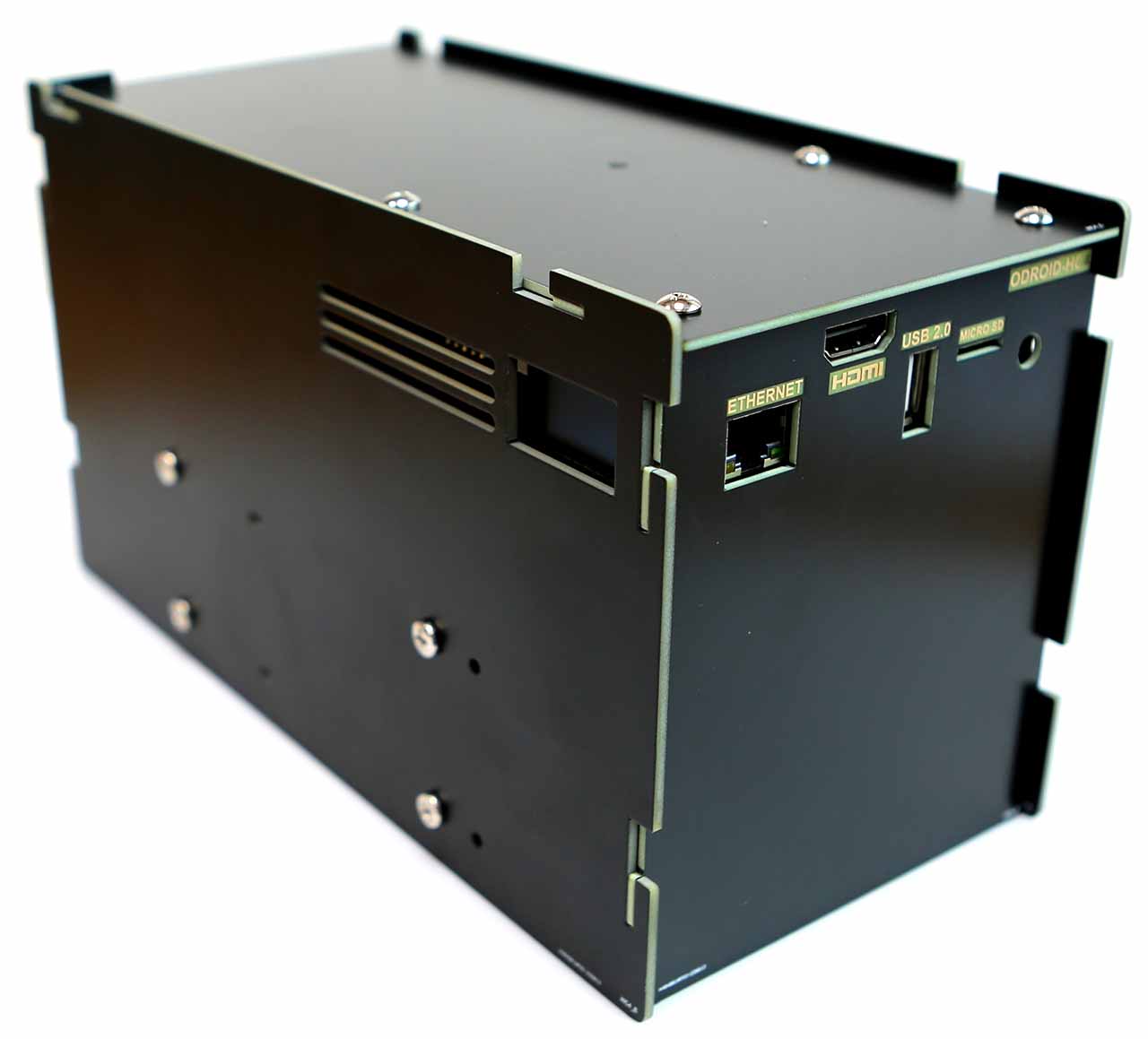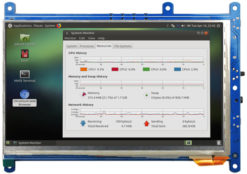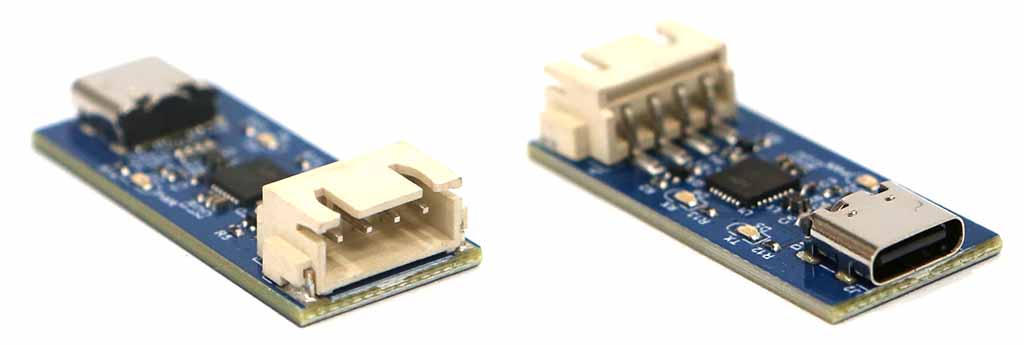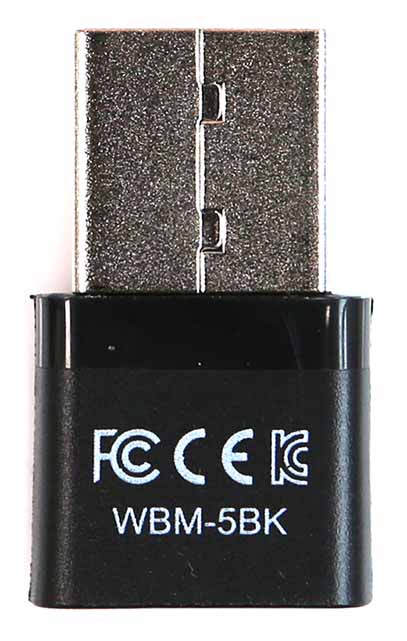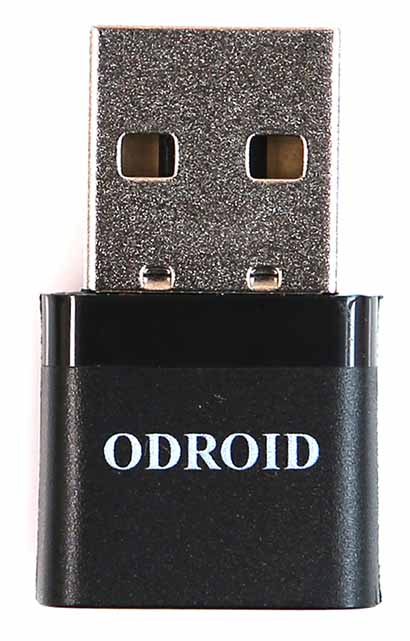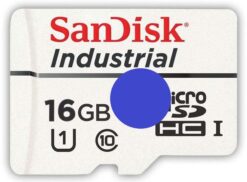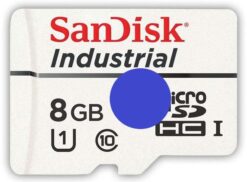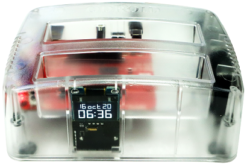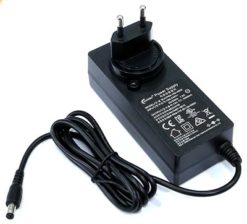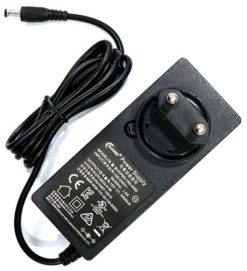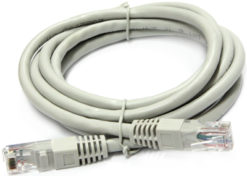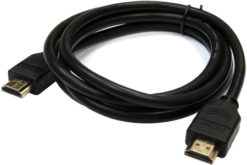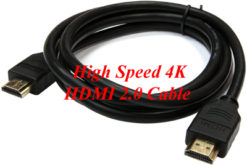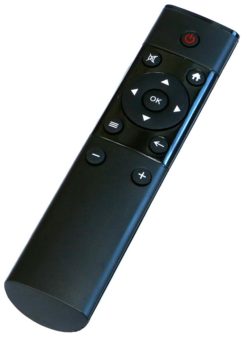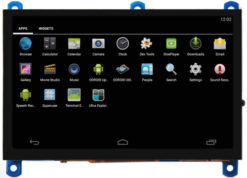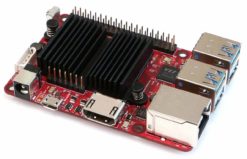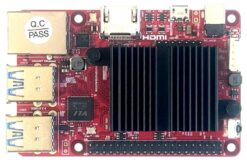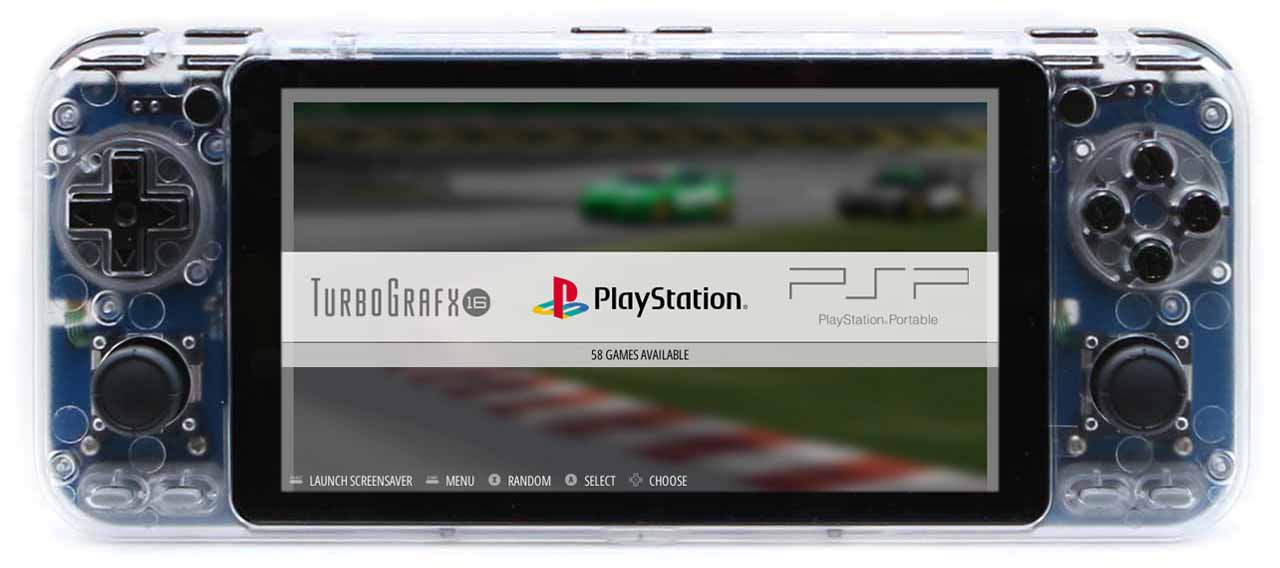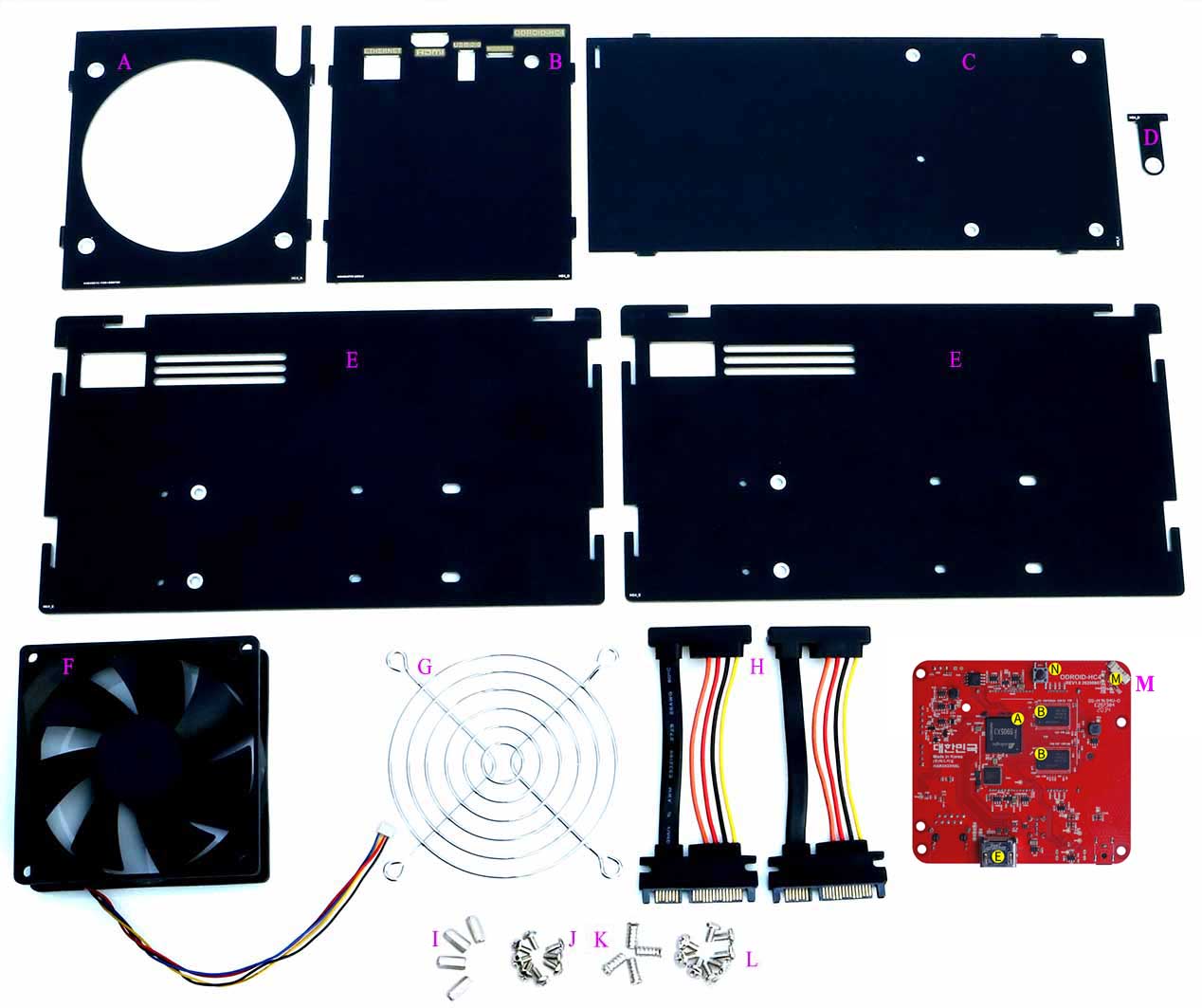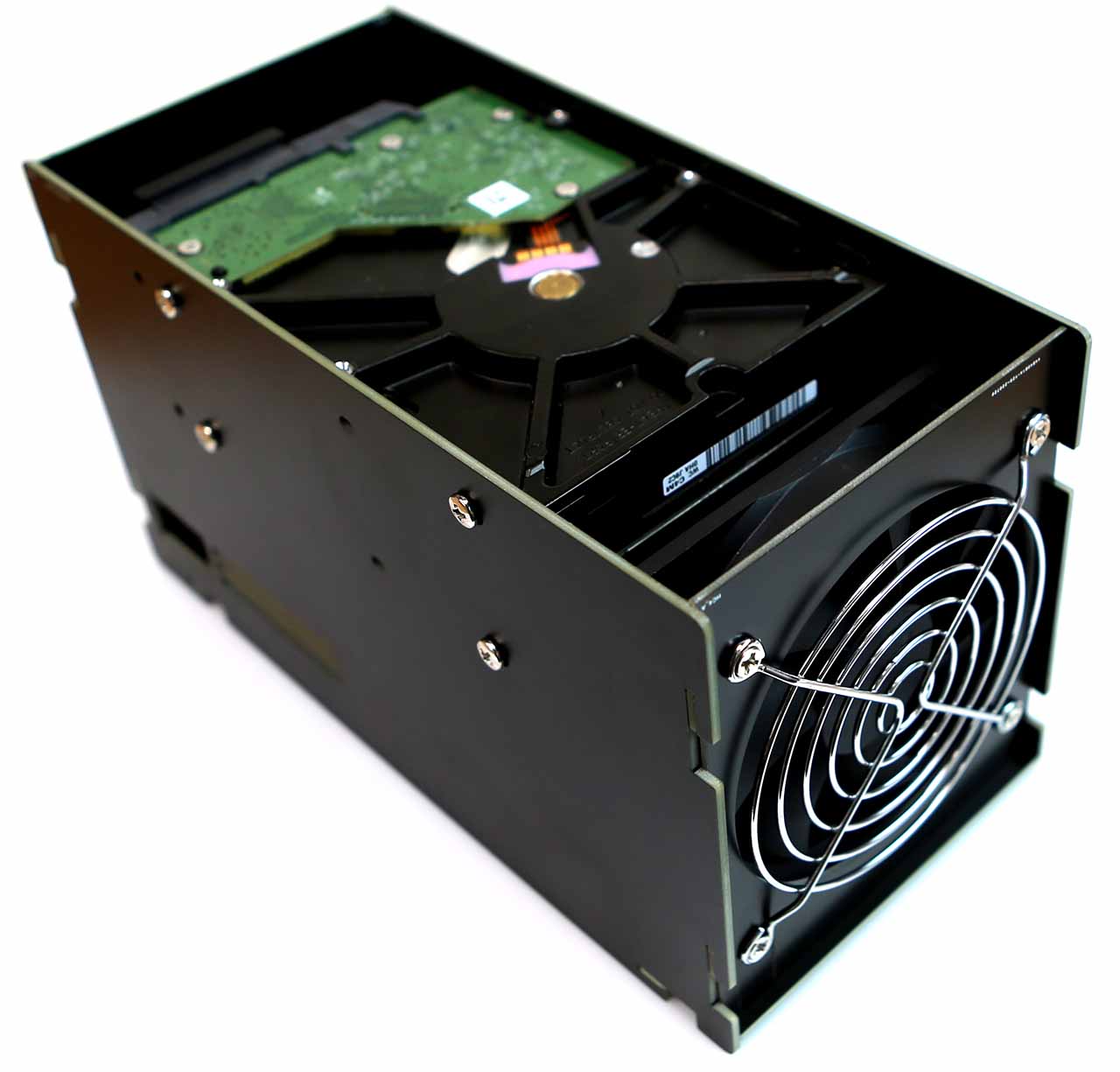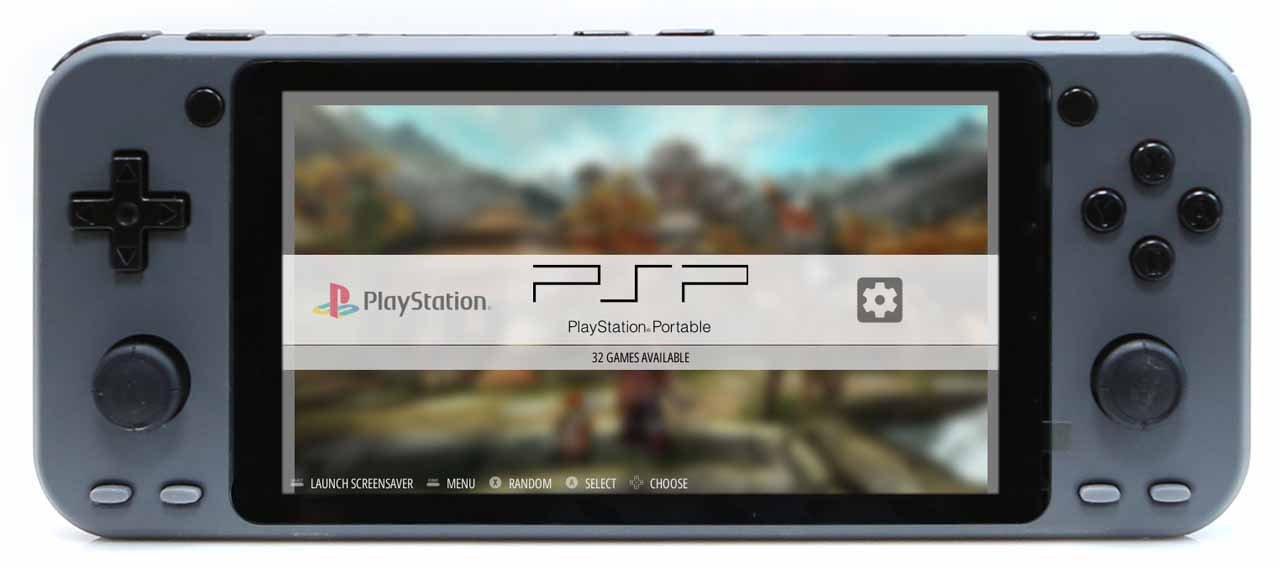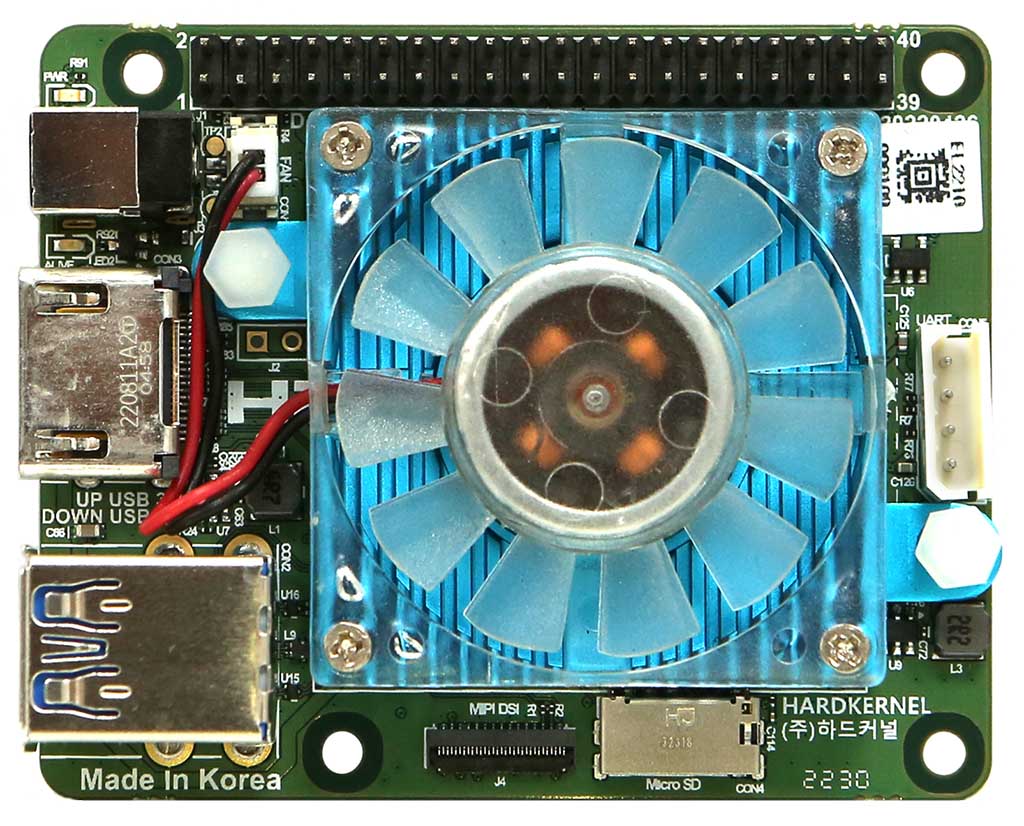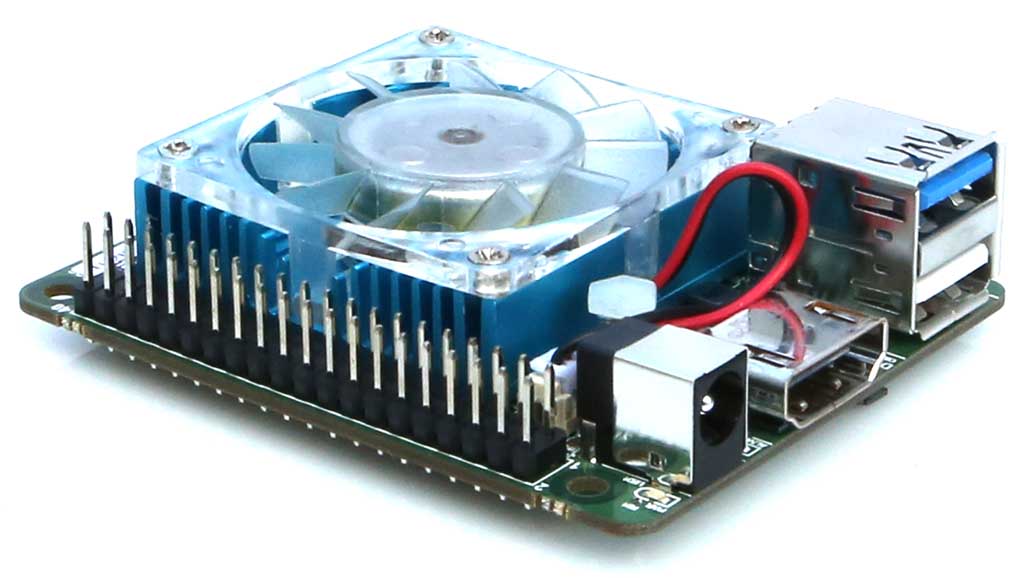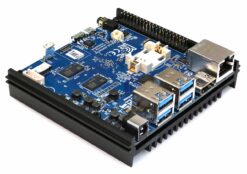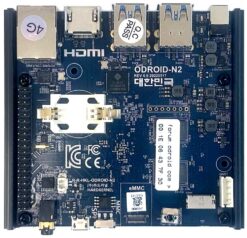ODROID-HC4
₩102,600
For Bank transfer
| Tier | Discount rate |
|---|---|
| 28 ~ 55 | 3% |
| 56 ~ 83 | 4% |
| 84 ~ and more | 5% |
ODROID-HC4 is new Home-Cloud platform based on the same ARM CPU as the ODROID-C4. We adopted a 12nm fabricated energy efficient 1.8Ghz Cortex-A55 quad core processor with faster 4GB DDR4 RAM. A 16MiB SPI flash chip exists on the board for the useful Petitboot feature.
Technical information at WiKi : https://wiki.odroid.com/odroid-hc4/odroid-hc4
- This page product doesn’t include OLED
We adopted a 12nm fabricated energy efficient 1.8Ghz Cortex-A55 quad core processor with faster 4GB DDR4 RAM. A 16MiB SPI flash chip exists on the board for the useful Petitboot feature.
We decided to drop the use of USB3.0 to SATA bridge solutions (quirks, additional IO layer, etc) for the ODROID HC4. We are therefore using a more native and reliable PCIe to SATA direct bridge solutions. In doing so the HC4 board provides two SATA storage docks.
A 5.5mm DC power jack, UHS-1 compatible micro-SD slot, USB 2.0, HDMI 2.0 and 1GbE port are available on the rear side of the transparent shell case.
Board Detail
| A | CPU (Amlogic S905X3) | H | 2x System LED indicators |
|---|---|---|---|
| B | DDR4 memory (4GiB) | I | 1x UART for system console |
| C | 2x SATA ports | J | 1x IR receiver |
| D | 1x RJ45 Ethernet port (10/100/1000) | K | 5x GPIO pins (for optional OLED display) |
| E | 1x HDMI 2.0 | L | 1x Micro SD slot |
| F | 1x USB 2.0 host port | M | 1x Cooling fan |
| G | 1x DC power jack (Outer diameter : 5.5mm, inner diameter 2.1mm) | N | 1x Boot switch |
The toaster form factor ODROID HC4
accepts 2 x 3.5” or 2 x 2.5”” mechanical or SSD disks. You can obviously also use one mechanical and one SSD. See two examples shown below. Thanks to Linux LVM or mdadm you can combine two disks in RAID 0, RAID 1 or optimize IO with a large disk using one mechanical drive and an SSD for disk caching (LVM, bcache, etc).
Two 12TB high performance HDDs on the HC4
Two Samsung SSDs on the HC4
Block diagram
SATA interface performance
We connected a SATA SSD to the HC4 platform and measured the storage IO throughput. We could observe 390~420MB/s transfer speed which is not saturated at the maximum level ~500MB/s which is quite good for many applications.
odroid@hc4:/media/ssd2$ iozone -e -I -a -s 100M -r 4k -r 16384k -i 0 -i 1 -i 2 Iozone: Performance Test of File I/O Version $Revision: 3.489 $ Compiled for 64 bit mode. Build: linux-arm random random kB reclen write rewrite read reread read write 102400 4 44097 62373 75362 75511 39859 60806 102400 16384 428515 426902 390226 392564 391412 427137 |
SMB/CIFS network file transfer performance over the Gbit Ethernet connection
As shown below Windows OS client shows a sustainable 100+ MB/s transfer speed when we download/upload large files.
Downloading
Uploading
Helios LAN Test Result
Samsung 860 EVO 250GB SSD
Seagate Barracuda 2TB HDD (ST2000DM006)
Thermal Characteristics
The SoC temperature was around 50~60°C with very heavy computing loads while the chamber temperature was set at 30°C. There is a 40mm cooling fan in the case and it manages the SBC temperature well and the CPU runs without any thermal throttling.
We could keep reading the HDD temperature via smartctl command and it was around 40°C with a continuous heavy rsync test between two HDDs.
Thermographics
When the ambient temperature was 33°C, the HDD surface temperature was up to 45°C. Once we used the same system at a normal 25°C room temperature, the HDD surface was lower than 40°C.
Power Consumption
Note 1: ST2000DM006 spin-down power consumption is 0.75W per HDD. Therefore, the HC4 idle mode power consumption is about 4W.
Note 2: Power consumption in Active state is tested while copying huge files through SAMBA service.
Note 3: Wake-up sources for the Suspend mode: Wake-on-LAN, IR remote receiver and RTC Alarm.
Software Support
Petitboot can find the OS on the SD card, the HDD or the SSD. So even if you do not have an SD card but you have a plugged-in HDD or SSD that has an OS installed, Petitboot will boot the HC4 using the OS from the HDD or SSD. Debian/Ubuntu OS can run with the Hardkernel’s preinstalled OS image or Debian/Ubuntu Netboot Installer which you can obtain from the ODROID forum.
Supported Linux kernel versions are:
- 4.9.230 or newer (Hardkernel stock OS version)
- Mainline kernel 5.8 or newer (Unofficial version from ODROID forum)
Specifications
| Form Factor | Board Dimensions: 84mm x 90.5mm x 25.0mm Heatsink Dimensions: 40mm x 32mm x 10mm Weight: 280g including heatsink, fan and case |
|---|---|
| Processor | Amlogic S905X3 Processor L1 instruction cache: 32 KB, 4-way set associative (128 sets), 64 byte lines, shared by 1 processor L1 data cache: 32 KB, 4-way set associative (128 sets), 64 byte lines, shared by 1 processor L3 data cache: 512KB , 16-way set associative (512 sets), 64 byte lines, shared by 4 processorsQuad-Core Cortex-A55 (1.800GHz) ARMv8-A architecture with Neon and Crypto extensions Mali-G31 MP2 GPU with 4 x Execution Engines (650Mhz) |
| Memory | DDR4 4GiB with 32-bit bus width Data rate: 2640 MT/s (PC4-21333 grade) 1.2Volt low power design |
| Storage | 1x Micro SD slot (DS/HS mode up to UHS-I SDR104) |
| Networking | 1 x GbE LAN ports (RJ45, supports 10/100/1000 Mbps) – Realtek RTL8211F (Ethernet transceiver) – LED indicators * Green LED: Flashing by data traffics at 100Mbps connection * Amber LED: Flashing by data traffics at 1000Mbps connection |
| Video | 1 x HDMI 2.0 (up to 4K@60Hz with HDR, CEC, EDID) |
| Audio | 1 x HDMI digital output |
| Cooler | 1 x Passive heatsink ( 40x32x10 mm ) on the CPU of PCB board 1 x Hydraulic Bearing FAN – Rated Voltage : 5V – Rated Current : 100mA – Max Speed RPM : 4,000 – Air Flow CFM : 4.3 – Air Pressure (In H2O) : 0.053 – Noise Level(dBA) : 23.9 – Dimension : 40 x 40 x 10.6 mm – Wire & Connector : 80mm, 4 pin 1.25mm pitch |
| External I/O | 1 x USB 2.0 host port 1 x Debug serial console (UART) 2 x SATA Connectors |
| Other features | IR receiver for remote controller System LED Indicators: – Red (POWER) – Solid light when DC power is connected – Blue (ALIVE) – Flashing like heartbeat while Kernel is running. |
| Power | 1 x DC jack : outer (negative) diameter 5.5mm, inner (positive) diameter 2.1mm DC input : 14.5V ~ 15.5V – DC 15V/4A power adaptor is recommended. Sold separately. Power consumption with two ST2000DM006 HDDs : – IDLE(with HDD in spin-down) : ≃ 5.88W – Active(using SAMBA): ≃ 15.59W – Suspend: ≃ 0.29W |
NOTE! Those marks are caused during process of injection molding, not defect or damage.
GTIN : 8809543642515
- The terms HDMI, HDMI High-Definition Multimedia Interface, HDMI Trade dress and the HDMI Logos are trademarks or registered trademarks of HDMI Licensing Administrator, Inc.
- HDMI, HDMI High-Definition Multimedia Interface(고화질 멀티미디어 인터페이스), HDMI 트레이드 드레스 및 HDMI 로고라는 용어는 HDMI Licensing Administrator, Inc.의 상표 또는 등록 상표입니다.

 English
English